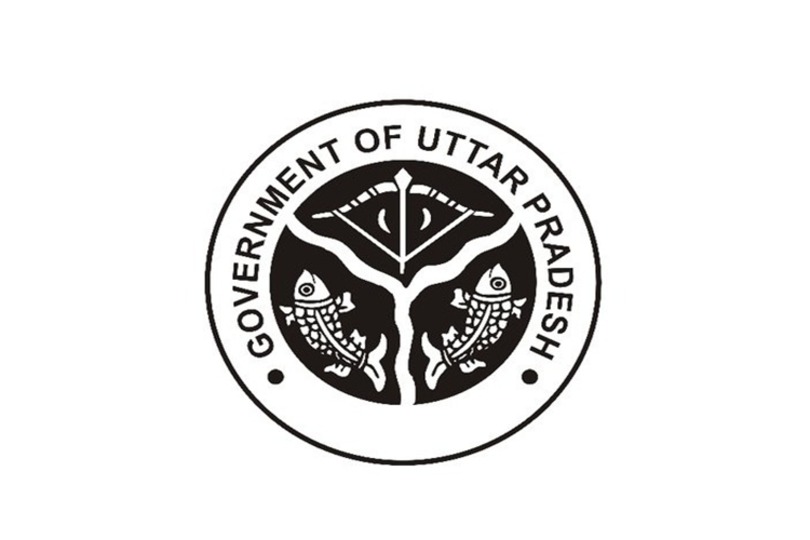The Uttar Pradesh Government is Prohibited from Taking Action Against Store Owners
on Oct 21, 2022

The Uttar Pradesh Board of Education is prohibited by the Allahabad High Court from taking action against store owners who sell books for use as a reference in the board's curriculum.
This decision was made after a petition filed by M/S Rajeev Prakashan and Company was heard by the division bench of Justice Manoj Misra and Justice Umesh Chandra Sharma.
The petitioner is a company that publishes textbooks, including reference volumes on a variety of topics that may be helpful for courses for students in class IX and up.
The petitioner claimed that he was offended by specific instructions given by educational authorities that bookstores must only stock texts and course materials that have received approval from the Madhyamik Shiksha Parishad of Uttar Pradesh.
According to the petitioner, Section 7 of the UP Intermediate Act, 1921 gave the Board the authority to set the curricula, textbooks, and other reading materials, if any, for the High School and Intermediate classes in whatever subject areas it deemed appropriate.
Additionally, the Board was given the authority to publish or create all or any of these textbooks, other publications, or educational materials, whether completely or partially at the expense of others. According to the petition, the Board used that authority to designate 67 NCERT volumes on 34 topics as textbooks and instructional material for grades IX and up.
According to the statement, the Board purchased the copyright to publish these works and licensed it to three publishers in exchange for a five percent royalty charge.
The petitioner complained that although the instructions in the letter dated July 6, 2022, may have been related to the Board's authority under Section 7 of the 1921 Act, the subsequent action, which was taken by district-level education authorities like the District Inspector of Schools, went so far as to forbid booksellers from keeping any textbooks other than those recommended by the Board.
The petitioner's attorney argues that copyright violations, piracy, misrepresentation, or cheating are individual acts for which legal action may be taken under applicable provisions of law, but that there cannot be a general order prohibiting a bookseller from keeping any other textbooks because students may use a variety of other books as reference materials to expand their knowledge or gain clarity on a topic.
A such directive would also violate the basic rights protected by Article 19 (1)(g) of the Constitution and have an impact on the right to subsistence protected by Article 21 of the Constitution. Additionally, it would be arbitrary and go against the proportionality theory.
The Court noted that the issue needed to be taken into consideration.
The counsel for the respondents claimed that the petitioner was engaged in copying and pirating NCERT books, for which the Board had acquired the copyright and granted licenses to the publishers. As a result, the counsel for the respondents claimed that the District Inspector of Schools' directives were only intended to prevent copying and pirating of those books, and the Board's orders, which were related to the exercise of its powers under Section 7 of the 1921 Act, were properly enforced.
Additionally, it is argued that the Board has the authority to specify textbooks or course materials for a variety of courses that are offered by institutions that are under its supervision following the Board's recognition of those institutions. As a result, the petitioner's fundamental rights would not be violated by the directives prohibiting copyright violations and falsely representing to the general public that books published are approved, which are prohibited by the directives.
The Board's directive to guarantee that the textbooks stated above are those for which the Board has acquired a copyright and granted publishers a license to print them is not currently being addressed by the Court because this petition does not dispute the Board's decision. The petitioner's main worry at this point is with the general directive given by the District Inspector of Schools in Mirzapur, which instructs the authorities to make sure that the booksellers only preserve the textbooks that have been approved by the Board.
"At first glance, such a directive does not seem to follow from the Board's order dated July 6, 2022, as the Board has issued directives to prevent piracy and duplication of the textbooks it has prescribed after obtaining the NCERT's permission to print them and licensing their printing to three publishers. Additionally, based on our initial evaluation, there is no clear-cut ban on the publication of texts by authors that students might find useful as reference materials, even though they cannot be marketed as course texts or texts that have been prescribed by the Board for the courses it administers, the Court noted.
For the aforementioned reasons, the Court deems it appropriate to request that each respondent produce a counter affidavit outlining their legal justifications for giving instructions similar to those in the District Inspector of Schools, Mirzapur, order of 29.7.2022.
The issue has been set for November 21 by the court, by which time the respondents must submit their counter-affidavit in light of the aforementioned remarks.
"The respondents are prohibited from taking action against shop owners who keep textbooks that can be used as reference materials for courses offered by the Board until the next date of listing, provided that those books do not pass muster as textbooks or course textbooks prescribed by the Board and approved by the NCERT.
The Court ruled: "It is also underlined that the aforementioned directive shall not exclude action against a person for breaching copyright or on account of the conduct of any offense.



.jpg)






.jpg)

.jpg)
.jpg)
.jpg)
.jpg)
.jpg)










Sorry! No comment found for this post.